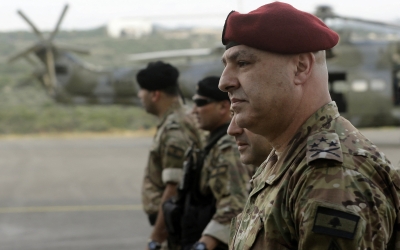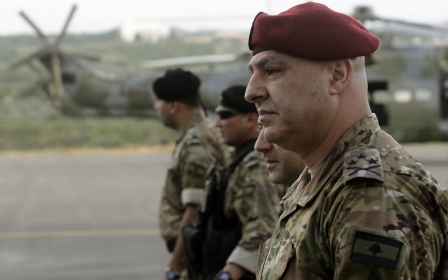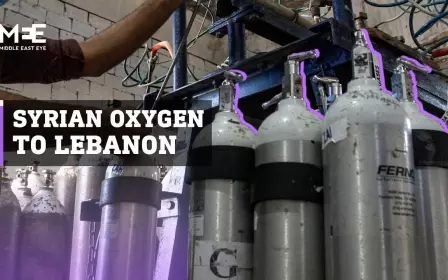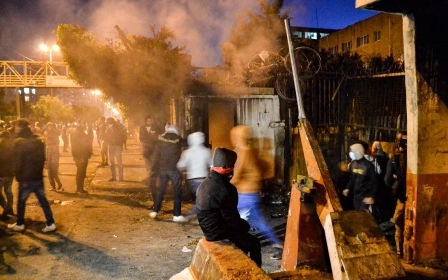Lebanon's energy minister blames fuel shortages on smuggling to Syria
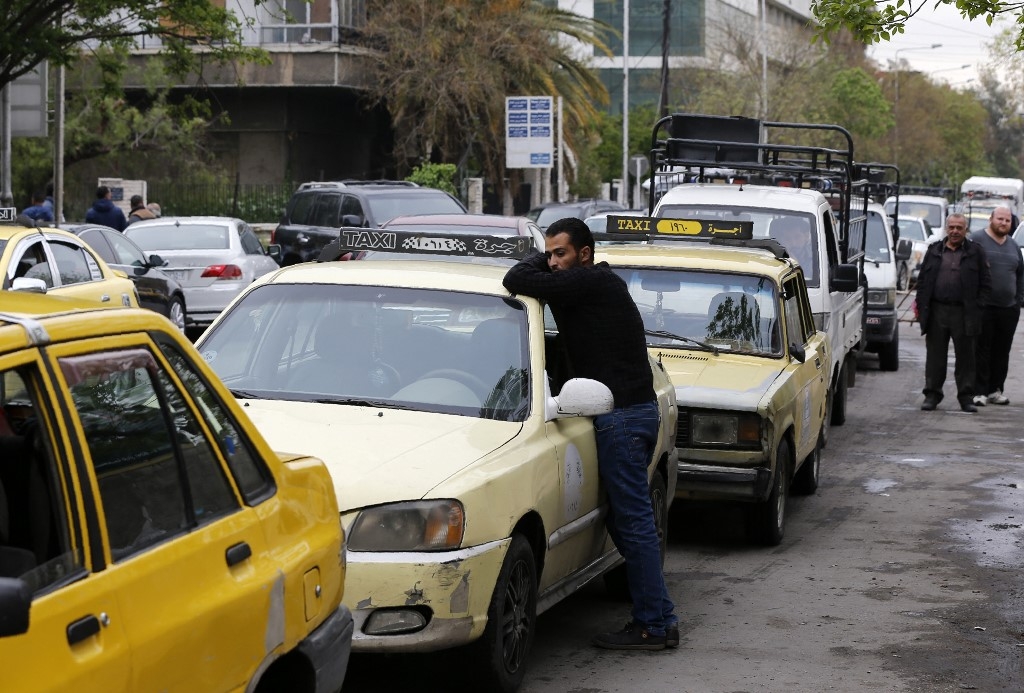
Soaring fuel prices caused by chronic shortages have been blamed by Lebanon's caretaker energy minister on smugglers exporting subsidised supplies into war-torn Syria.
Raymond Ghajar said the price for gasoline in Syria is triple the Lebanese price, which is encouraging smugglers to sell supplies there.
"The need for petrol on the Syrian market is pushing Lebanese smugglers to smuggle it into Syria for massive profits," Ghajar told reporters.
There have been repeated waves of protests against the Lebanese political system over the past two years over its failure to control inflation and provide fundamental services to the population.
Ghajar said Lebanese should not hoard fuel supplies and that there will be no short-term lifting of subsidies until a rationing system is developed.
The government in neighbouring Syria, where there are often hours-long queues for the limited fuel supplies available, raised petrol prices by more than 50 percent in March.
In Lebanon, a 20-litre tank of state-subsidised petrol now costs around $3 at market exchange rates, while in Syria the same amount sells for $7-$13, depending on the grade, AFP reported.
Government ineptitude
Many Syrians with the financial means prefer to buy Lebanese fuel, smuggled across the border, at a mark-up of up to $25 per tank, rather than sometimes waiting for upwards of six hours for minimal fuel supplies through official channels.
Lebanese officials have long blamed such contraband activities for fuel shortages in Lebanon, but have not given further details.
In July, Ghajar said fuel was "evaporating, we want to know where is it going - there is smuggling for sure, but we still don't know the quantities".
Lebanon's currency has been in freefall since mid-2019, losing more than 85 percent of its value against the dollar.
That has sparked an economic crisis and crushing inflation, with prices of basic commodities rising 144 percent, according to International Monetary Fund estimates.
More than half the country is under the poverty line.
Protests in the country have blamed the ineptitude of the government for many of the country's woes, including its lack of an energy policy.
Middle East Eye delivers independent and unrivalled coverage and analysis of the Middle East, North Africa and beyond. To learn more about republishing this content and the associated fees, please fill out this form. More about MEE can be found here.


